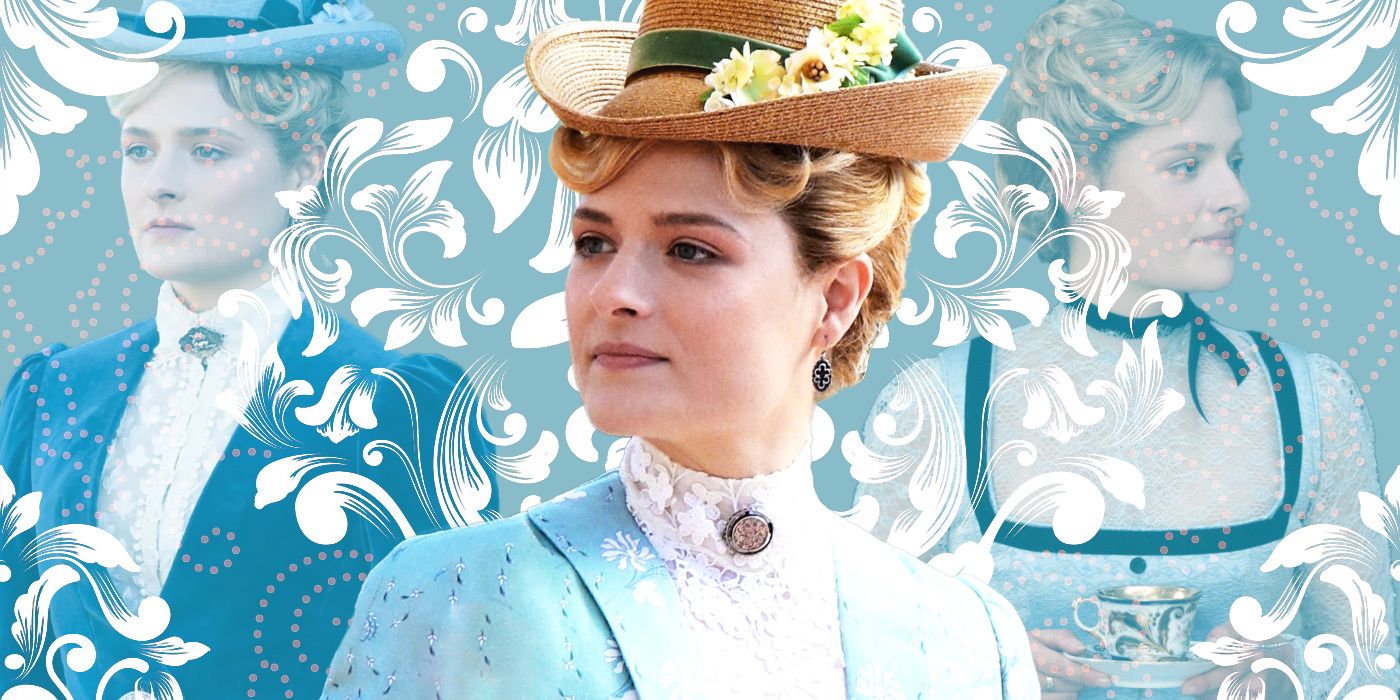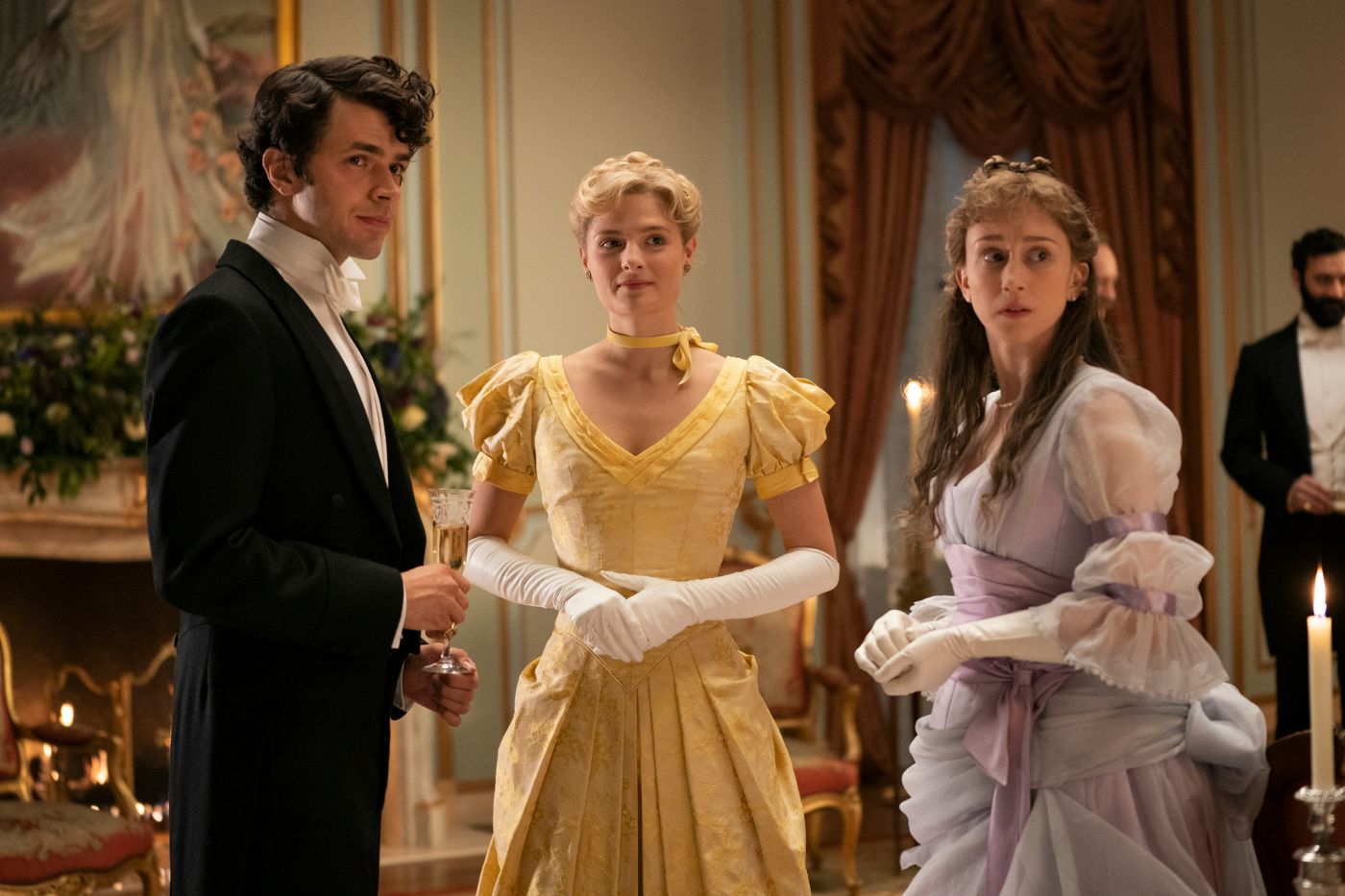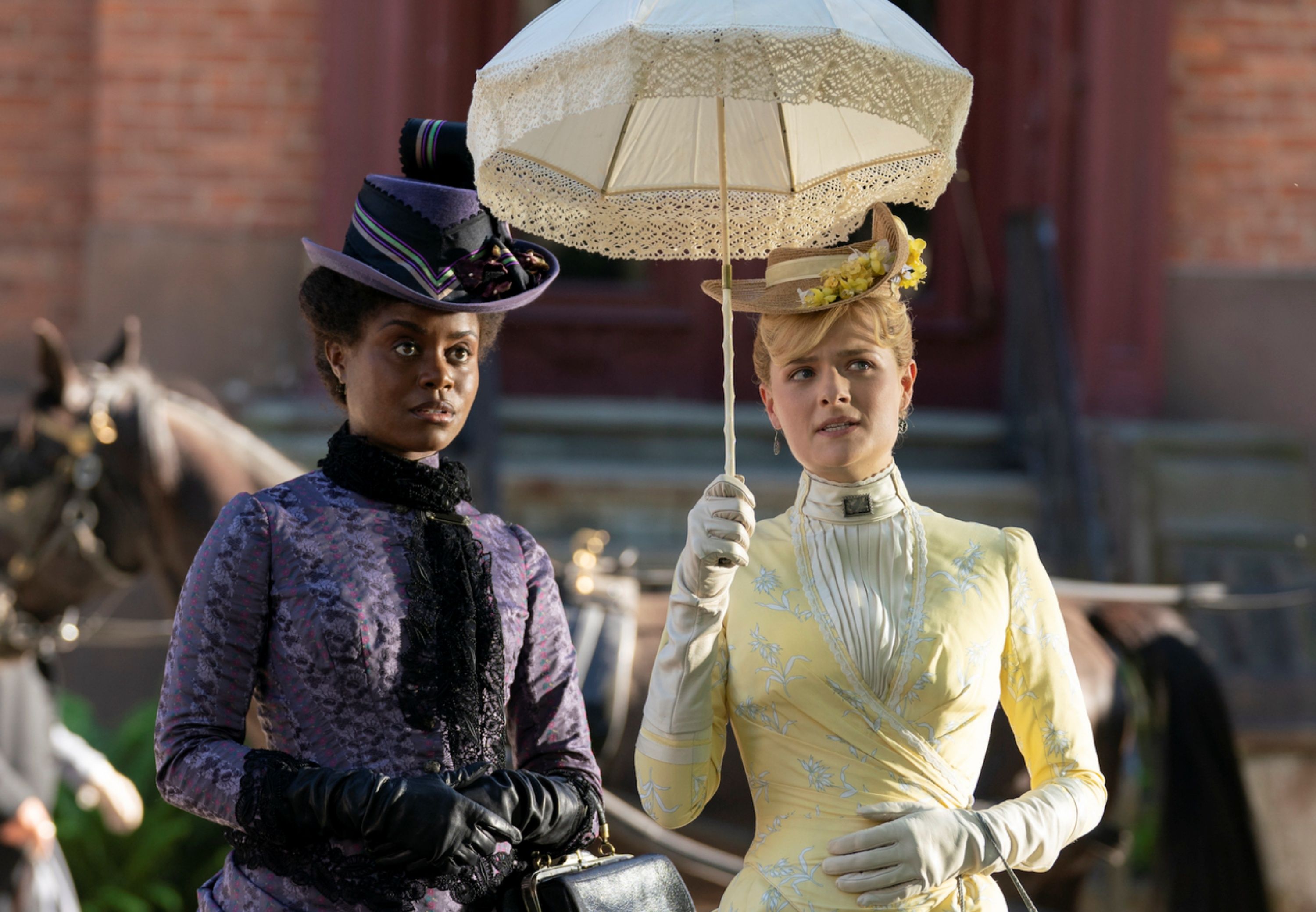Through its nine-episode first season, HBO’s The Gilded Age takes audiences on an opulent journey through New York City’s 19th-century upper crust. The series does not necessarily have a sole protagonist, instead giving pretty even attention to its rich ensemble cast. However, outsider Marian Brook (Louisa Jacobson) still gives off the impression of being the main character, if only because it is through her that the audience first enters the world of the show. Having been left destitute after the loss of her father, she is forced to throw herself at the mercy of her wealthy aunts, moving from rural Pennsylvania to live with them in New York City. Her personal drama as she navigates her new home also takes up a large chunk of the show’s narrative. Despite her prominent part in the series, as well as her role as an audience surrogate, her plotline proved to be significantly less compelling this season, especially compared to characters like Aunt Agnes (Christine Baranski), Bertha Russell (Carrie Coon), and Peggy Scott (Denée Benton). Marian’s blandness comes largely from how little we know about her past, which is nonexistent without being mysterious. This writing flaw gives her present choices and opinions nothing to connect to and subsequently makes her hollow in a world populated by characters who are significantly informed by their backgrounds and experiences.
A core aspect of Marian’s character is that she critiques the old money sensibilities of her relatives and the society in which they live. These divisive decisions include society's rejection of the Russells, the nouveau riche family striving for acceptance by the old guard. It also includes their shunning of Mrs. Chamberlain (Jeanne Tripplehorn) who, despite being a member of the old money elite, is a pariah because she was mistress to her late husband while his first wife was dying, even having their child out of wedlock. While others caution Marian not to be seen with Mrs. Chamberlain, lest her reputation suffer, Marian does not let their warnings and biases affect her, even visiting Mrs. Chamberlain at home. Similarly, she socializes with the Russells, even at the beginning of the series when nobody else will. While with her aunts and with other old money people, she wonders out loud why the Russells shouldn’t be accepted, eliciting exaggeratedly horrified reactions. Similar reprobations accompany any egalitarian views regarding Mrs. Chamberlain.
In voicing these opinions, Marian is continuing her role as an audience surrogate: like Marian, we too are uninitiated in New York high society, have only just become exposed to it (in our case, through the medium of the show), do not understand its customs and prejudices, and, from our 21st-century perspectives, see the old versus new money dynamic and the rejection of “fallen” women such as Mrs. Chamberlain as illogical and unkind. However, one crucial difference exists between us and Marian Brook: unlike us, Marian is a product of her time, a child of the 19th century like all the other characters. Therefore, there should be a distinct reason why her opinions differ so widely from those exhibited by the people in the surrounding society. Even the new money Russells acknowledge the barrier between the old and the new. Mrs. Russell’s solution is not to protest the existence of that barrier and challenge the mores of her time period, but to transition to the group she wants to be part of.
Not every character has the same opinions or outlook on the world, but these opinions always come from somewhere—often from their position in society or from their life experiences. Aunt Agnes’ distrust of Mr. Raikes (Thomas Cocquerel) doesn’t come from the void: she has a sister whose suitor proved to be an adventurer, and she herself was in a loveless marriage to save her family from financial ruin. Though at first, she may seem like a curmudgeon who disapproves of everyone, her life experiences have given her enough insight that she’s actually often right, especially about people. Bertha Russell, meanwhile, is the daughter of a potato farmer. She’s come incredibly far for someone of her background, and she did not come as far as she did only to be satisfied with almost having everything. With her past, her ambition makes sense.
Peggy exists on the opposite spectrum of Marian: for the majority of the series, we also know very little about her past. However, unlike Marian, Peggy’s past is a tangible entity: something mysterious to be discovered, which informs who she is. She wants independence from her family, doesn’t trust her father, needs a lawyer, and supports Marian’s relationship with Mr. Raikes–all of these traits are deeply connected to her mysterious past. We find out how when it’s revealed that she was married to and had a child with a man whom her father (John Douglas Thompson) deemed unsuitable and that he forced her to separate from her husband. She believes her child died but discovers he’s alive and that her father lied to her about him. Thus, none of her beliefs or personality traits exist in a vacuum: like everyone else, her life and experiences inform who she is as a person.
Marian’s beliefs, in contrast, do exist in a vacuum, and there is no indication of what it is about her background that made her come to the conclusions that she expresses. Her past is never presented as something worth discovering; it is merely the vague ether from which she was spat before moving to New York to embark on her half-baked fish out of water narrative. Except that, for a fish out of water story to work, audiences need to know what the water that the fish came out of was actually like. Otherwise, its actions in the new environment don’t mean anything. There is nothing wrong with her opinions themselves–they simply need to come from somewhere so that they hold more weight in their social commentary.
The Gilded Age could have given several potential reasons for Marian’s views. One option would have been to make them stem specifically from her relationship with her father. We know that he died, leaving her very little money, and that he was a general in the Union Army. Marian even corrects Mr. Raikes when he calls her father Mr. Brook; however, the fact that he’s a general never becomes important to the narrative and is never mentioned beyond the first episode. Since the Civil War is a recent event, Marian’s father’s part in it could have made their way into the values with which he raised her. At the same time, growing up in rural Pennsylvania would make her incredibly naive, explaining the fact that while she has good intentions, sometimes she stumbles in extremely embarrassing ways. Currently, there is no significance attributed to the place of her upbringing, nor do we know anything about it beyond the few establishing shots confirming its existence.
Another backstory the show could have given Marian to explain her present views and personality would be a religious upbringing: specifically, since she grew up in rural Pennsylvania, part of her history could be that she grew up as a Quaker. This would also give significance to the Pennsylvania location. Making Marian a Quaker would also make her a more interesting audience surrogate, in that she would be familiar with the 21st century in some respects but very tied to the 19th in others. Her outsiders’ perspective would then be from the point of view of a distinct group, providing another historical angle on the new vs. old money conflict.
Of course, Season 1 of The Gilded Age has already wrapped and, though the series has already been renewed for a second season, it’s difficult to tell how much of Marian's potential could be salvaged in upcoming installments. In saving Marian's character, The Gilded Age would be attempting a redemption arc of a different, and much more difficult, kind. It's possible that it may be too late for poor, bland Marian Brook. But then again, we live in a world in which Mrs. Russell has just succeeded in getting Mrs. Astor to attend Gladys' debutante ball. No mountain is too high.



